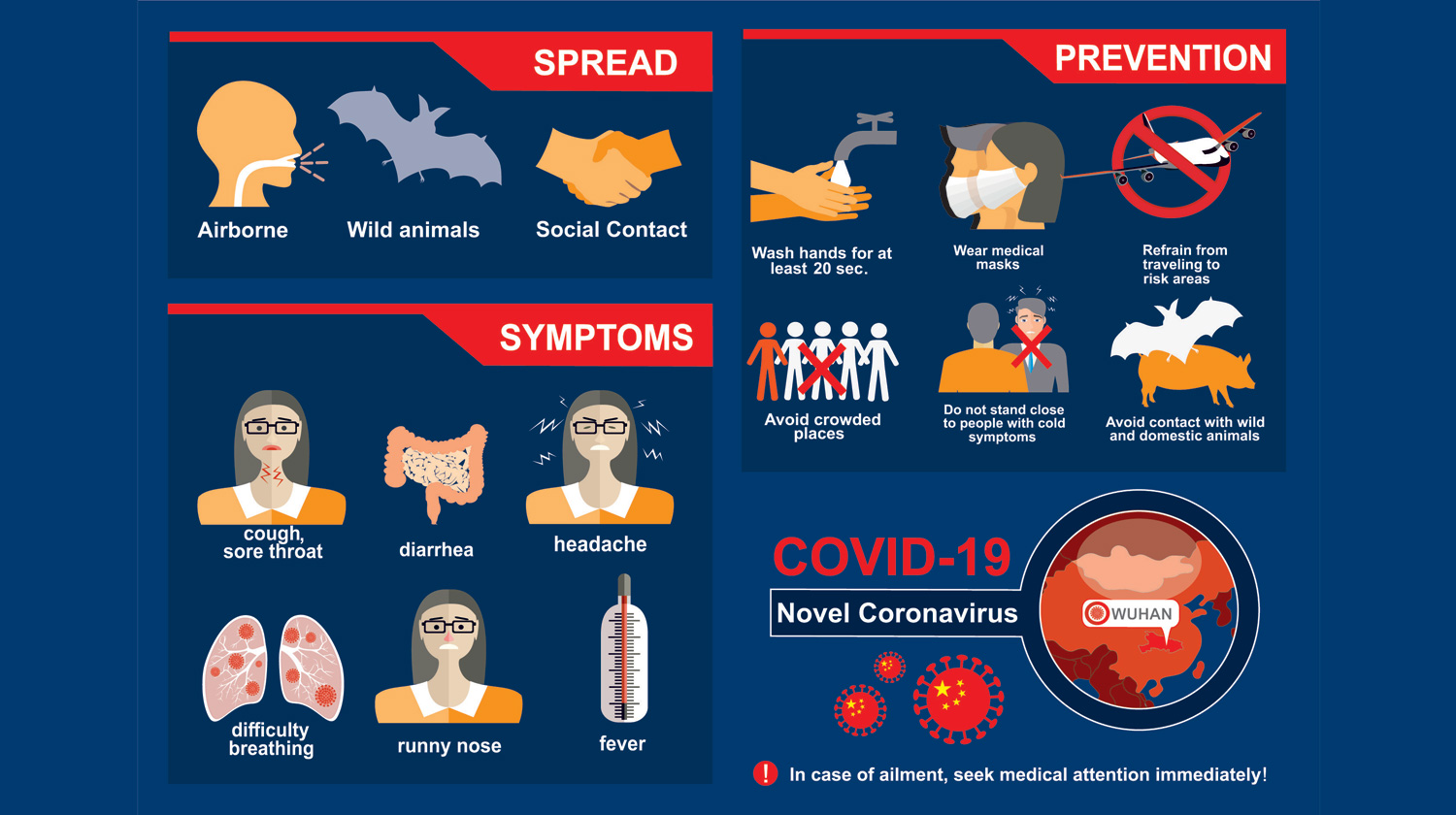

Muscat, March 7 - Cornavirus (COVID-19) of course is a significant concern to us all at the moment, but let’s not lose sight of the fact that neither Severe Acute Respiratory Syndrome (SARS-CoV 2003) nor Middle East Respiratory Syndrome (MERS-CoV.EMC-2012) have proven to be half as bad as was at first believed to be. In fact, for clarity, most of the seven varieties of coronavirus manifest themselves as a simple cough or cold, and belong to the ‘Alpha’ group, while the three later, more virulent and active strains, are from what is known as the ‘Beta’ group.
SARS, a form of coronavirus originated in November 2002, among a colony of cave-dwelling bats from the Yunnan Province in South China, according to the UK’s Guardian newspaper. “It spread quickly because the health authorities of that country refused to acknowledge they had a problem,” reported the giant CBC network in April 2003, upon learning that the first known case had been identified in November of the previous year. Over 8,000 cases were reported according to the World Health Organization (WHO) with a little less than a 10-per cent fatality rate.
The second significant strain of coronavirus to trigger alarm around the world was MERS, and was given its designation by the WHO in 2013. “It originated in Saudi Arabia, in 2012,” according to the New England Journal of Medicine.
The most frightening discovery for researchers at that time was the almost certain proof that this strain of the virus was transmitted to and by both humans and animals, most often identified in Saudi Arabia as camels.
The origins of coronavirus lay in Wuhan, Hubei Province, in China. As there is no vaccine or antiviral treatment available at this stage, the most practical self-medication is to maintain sterile personal preventative measures such as frequent hand-washing, using hand sanitisers, avoiding crowds and large gatherings of people.
Currently, just under 100,000 people have fallen prey to the virus, which although there is no vaccine, of those, half the cases are showing a full recovery, and less than 4 per cent fatalities, which is a glimmer of light for researchers, also bemused as to why very few children appear to have contracted the disease. The Center for Disease Control and Prevention (USA) is very clear as to how the disease is transmitted, and that is mainly via “close person-to-person contact through respiratory droplets, which have a greater prospect of spreading through being inhaled when an infected person coughs or sneezes in your vicinity.” They state that a “less likely manner of transmission is via touching an infected surface.” It is also, perhaps, reassuring to understand that “the virus is most contagious, or communicable when it is at its most symptomatic, or when the symptoms are most obvious.”
So what does all of this mean to ordinary people. The Ministry of Health in Oman has simple advice for residents, and that consists of:
• Avoid contact with animals, and cook animal products well before consumption.
• Avoid sick or ill people.
• Sneeze or cough into disposable tissues or elbows.
• Wash hands regularly with warm soapy water, or use alcohol-based hand sanitisers.
The first is certainly well-motivated but may well be based on MERS history, rather than any proof of animal transmission, however it displays sound thinking at the MoH. Those who have sick relatives or need to visit a clinic themselves will find themselves in a no-win situation however, as a hospital visit yesterday revealed large numbers of sick people due to the weather changes common at this time of year. Finding oneself in a waiting area full of others with coughs and sniffles is the conundrum facing all of us.
Face masks, insist medical professionals, have extremely limited value in keeping infection at bay, so the shortage of that product may not have such dire consequences, but those who insist upon wearing masks will feel better in themselves that they are acting responsibly, so who can be critical? Maybe as a thought, the MoH could continue their good work, by releasing a list of alcohol-based hand sanitisers?
From a practical perspective, it would appear that Iran is the country where most global sufferers have recently travelled, so that may be a start point for deciding ongoing strategies.
Then, as every few days offers new information, such public gatherings as schools, sporting events, and even the Haj, may eventually fall victim to coronavirus.
What is clear is that we, as a race, may face such issues every generation based on a 2003, 2012, 2019 succession of meaningful viral illnesses, and the global scientific fraternity needs to somehow get ahead of this insidious merry-go-round.
It’s certainly not much fun knowing COVID-19 is in our world. I guess our choice now is our attitude to it.
Oman Observer is now on the WhatsApp channel. Click here



